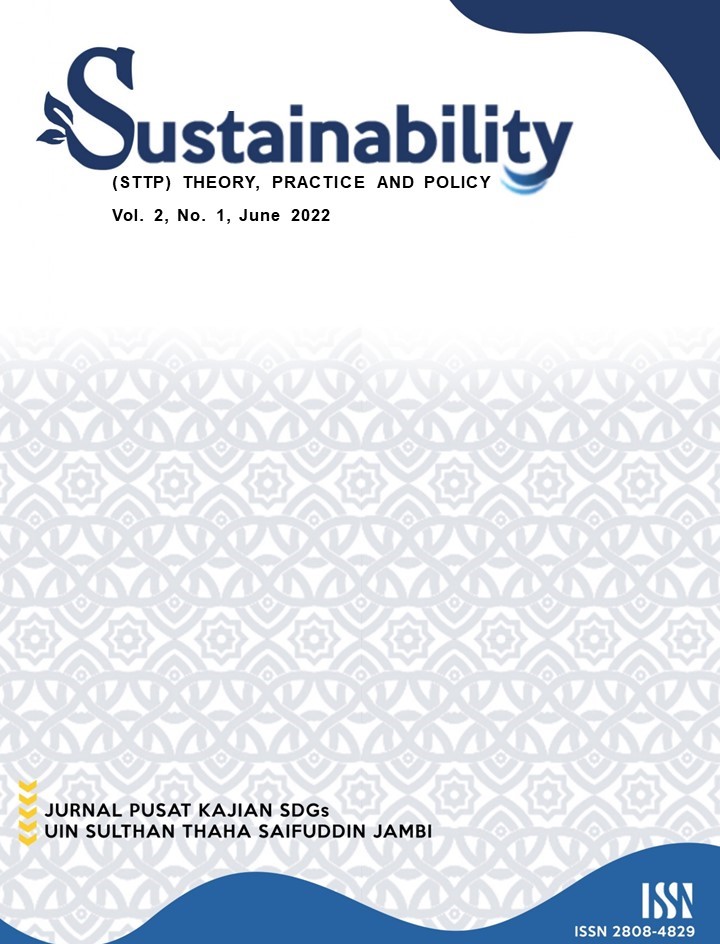The Role of Entrepreneurship Orientation and Competitive Advantage as Strategy to Improve MSME Performance Post Covid-19 Pandemic in Batam City
DOI:
https://doi.org/10.30631/sdgs.v2i1.1253Keywords:
competitive advantage, entrepreneurship orientation, Performence, pandemic Covid-19, MSMEsAbstract
The Indonesian economy after Covid-19 pandemic has caused a decline in various business sectors, including Micro, Small and Medium Enterprises (MSMEs) which have become the government's attention in national economic recovery. Batam City has shown achievements in handling the COVID-19 pandemic quickly, as well as carrying out economic recovery and sustainability. The entrepreneurial orientation view shows an effort to encourage the improvement of MSME performance by referring to the entrepreneurial aspect, namely daring to take risks, act proactively and always be innovative. Meanwhile, competitive advantage is an important effort so that the performance of MSMEs becomes superior. This study aims to examine the entrepreneurial orientation towards improving the performance of MSMEs through the mediation of competitive advantage after the Covid-19 pandemic in Batam. Testing direct and mediation effect using quantitative methods with statistical tools IBM SPSS software with additional features PROCESS Macro and performing sample bootstrapping technique on research. Data collection is 100 respondents using convenience sampling in Batam city. The results of this study indicate that entrepreneurial orientation is an important resource that can determine the recovery of MSME performance through mediation of competitive advantage. This study offers a contribution to literature in MSMEs field by providing empirical evidence on the extent to which entrepreneurial orientation affects the performance of MSMEs by mediating competitive advantage. Based on theory of resource based view that entrepreneurial orientation has been used as a resource for business organizations in the form of encouragement that refers to the entrepreneurial aspect of making competitive advantage so that it results in improving the performance of MSMEs in a sustainable manner.
References
Belitski, M., Guenther, C., Kritikos, A. S., & Thurik, R. (2022). Economic effects of the COVID-19 pandemic on entrepreneurship and small businesses. Small Business Economics, 58(2), 593-609.
Baron, R. M., & Kenny, D. A. (1986). The moderator–mediator variable distinction in social psychological research: Conceptual, strategic, and statistical considerations. Journal of personality and social psychology, 51(6), 1173.
Ferreira, J., Coelho, A., & Moutinho, L. (2020). Dynamic capabilities, creativity and innovation capability and their impact on competitive advantage and firm performance: The moderating role of entrepreneurial orientation. Technovation, 92, 102061.
Hair, J. F. J., Black, W. C., Babin, B. J., & Anderson, R. E. (2013). Multivariat data analysis (Seventh).
Ibrahim, N. M. N., & Mahmood, R. (2016). Mediating role of competitive advantage on the relationship between entrepreneurial orientation and the performance of small and medium enterprises. International business management, 10(12), 2444-2452.
Kementerian Koperasi & UKM (2022). Jumlah UMKM Kota Batam. March 1, 2022, retrieved from http://umkm.depkop.go.id/
Kiyabo, K., & Isaga, N. (2020). Entrepreneurial orientation, competitive advantage, and SMEs' performance: application of firm growth and personal wealth measures. Journal of Innovation and Entrepreneurship, 9(1), 1-15.
Laporan Perekonomian Kepulauan Riau (2022). Annual report. Retrieved from https://www.bi.go.id/id/publikasi/laporan/lpp/Pages/Laporan-Perekonomian-Provinsi-Kepulauan-Riau-Februari-2022.aspx
Mahmood, R., & Hanafi, N. (2013). Entrepreneurial orientation and business performance of women-owned small and medium enterprises in Malaysia: Competitive advantage as a mediator. International Journal of Business and Social Science (IJBSS), 4(1), 82-90.
Nakku, V. B., Agbola, F. W., Miles, M. P., & Mahmood, A. (2020). The interrelationship between SME government support programs, entrepreneurial orientation, and performance: A developing economy perspective. Journal of Small Business Management, 58(1), 2-31.
Hayes, A. F. (2017). Introduction to mediation, moderation, and conditional process analysis: A regression-based approach. Guilford publications.
Rodríguez-Gutiérrez, M. J., Moreno, P., & Tejada, P. (2015). Entrepreneurial orientation and performance of SMEs in the services industry. Journal of Organizational Change Management.
Tresna, P. W., & Raharja, S. U. J. (2019). Effect of entrepreneurial orientation, product innovation and competitive advantage on business performance in creative industries in Bandung City, Indonesia. Review of Integrative Business and Economics Research, 8, 51-60.
Zighan, S., Abualqumboz, M., Dwaikat, N., & Alkalha, Z. (2021). The role of entrepreneurial orientation in developing SMEs resilience capabilities throughout COVID-19. The International Journal of Entrepreneurship and Innovation, 14657503211046849.














